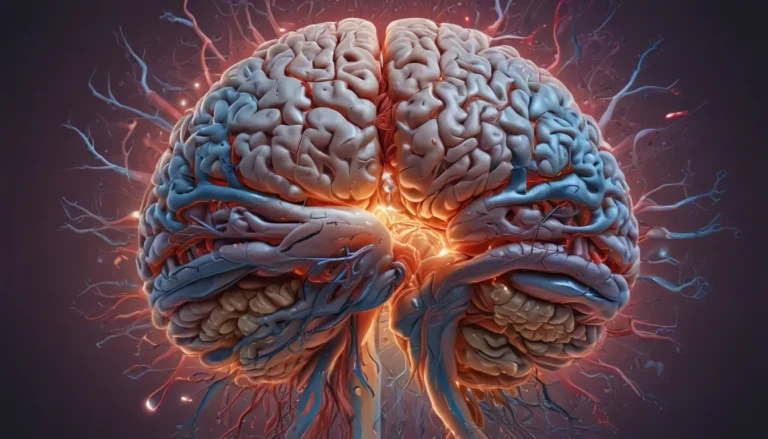A Note About Images: The images used in our articles are for illustration purposes only and may not exactly match the content. They are meant to engage readers, but the text should be relied upon for accurate information.
Embark on a mesmerizing journey through the intriguing realm of the circadian rhythm, a remarkable biological clock that orchestrates our daily lives. From controlling our sleep-wake cycles to influencing vital bodily processes, the circadian rhythm holds the key to optimal health and well-being. Join us as we unravel ten astonishing facts that will deepen your appreciation for this intricate internal clock.
Unlocking the Mystery of Circadian Rhythm
The circadian rhythm serves as our body’s internal timekeeper, orchestrating a symphony of physiological functions such as sleep patterns, hormone regulation, body temperature, and appetite. This intricate system ensures that our bodies operate in harmony with the day and night cycle, enabling us to adapt to the ever-changing demands of our environment.
Universality of Circadian Rhythm Across Living Organisms
Surprisingly, the circadian rhythm is not exclusive to humans but is prevalent in virtually all living organisms, ranging from plants and animals to bacteria. This widespread occurrence suggests that the evolution of circadian rhythms is intricately linked to the rotation of the Earth and the alternating cycles of light and darkness.
Light: The Architect of Circadian Regulation
Light emerges as the primary external cue that synchronizes our circadian rhythm. Special cells in our eyes’ retina detect variations in light intensity and relay this information to the brain’s master clock, the suprachiasmatic nucleus (SCN). This coordination ensures that our biological processes align with the external light-dark cycle, guiding our daily routines.
Health Implications of Disrupted Circadian Rhythm
Disruptions to our circadian rhythm, whether due to shift work, jet lag, or irregular sleep patterns, can have profound implications for our health. Studies have linked chronic circadian disturbances to an increased risk of obesity, diabetes, cardiovascular diseases, mental health disorders, and certain types of cancer. Respecting and nurturing our circadian rhythm is vital for overall well-being.
Embracing Diversity: Night Owls and Morning Larks
Each individual’s circadian rhythm varies, influencing whether they lean towards being night owls or morning larks. While some thrive in the late hours and struggle with early mornings, others experience peak energy levels in the mornings. Genetic factors play a role in determining these preferences, highlighting the uniqueness of our biological clocks.
Flexibility in Circadian Rhythm: Beyond Light Influence
While light plays a pivotal role in regulating our circadian rhythm, other factors such as temperature, meal times, social cues, and physical activity timing can impact its flexibility. By judiciously manipulating these external cues, we can optimize our circadian rhythm to align with our preferred sleep-wake patterns, promoting overall well-being.
Cognitive Impact of Circadian Disruptions
Research indicates that disruptions to the circadian rhythm can detrimentally affect cognitive functions like attention, memory, and decision-making. Inadequate sleep resulting from a misaligned circadian rhythm can diminish productivity and elevate the risk of accidents, underscoring the significance of maintaining a harmonious internal clock.
Temperature: A Reflection of Circadian Harmony
Our body temperature follows a circadian rhythm, peaking in the evening and slightly decreasing during the night. This temperature fluctuation plays a crucial role in regulating metabolic processes, sleepiness, and overall physiological function, underscoring the intricate interplay within our internal clock.
Light Therapy: Resetting the Circadian Clock
Exposure to bright light, especially in the morning, serves as a potent tool for resetting our circadian rhythm. Light therapy, a technique leveraging this principle, is employed to treat sleep disorders and mood conditions like seasonal affective disorder (SAD), showcasing the remarkable potential of light in regulating our internal clock.
Optimal Sleep and Well-being Through Circadian Awareness
By cultivating an understanding of our individual circadian rhythm and aligning our lifestyle choices with its demands, we can enhance our sleep quality and overall well-being. Consistency in sleep schedules, minimizing bright light exposure before bedtime, and fostering a sleep-conducive environment are pivotal in optimizing our circadian rhythm for holistic health.
Embracing the Wonder of Circadian Rhythm
In conclusion, delving into the complexities of the circadian rhythm holds the key to nurturing our physical and mental well-being. This biological clock, present across diverse organisms, influences critical facets of our lives, from sleep patterns to cognitive function. By syncing our daily routines with our innate biological rhythms, we pave the way for improved sleep quality, heightened productivity, and enhanced health and vitality.
FAQs: Unlocking Further Insights into Circadian Rhythm
- What is the circadian rhythm?
-
The circadian rhythm is an internal clock regulating the sleep-wake cycle and various biological functions in living organisms.
-
How does the circadian rhythm impact sleep?
-
The circadian rhythm dictates the timing and quality of sleep, ensuring synchronization with the day-night cycle.
-
Can the circadian rhythm be disrupted?
-
Yes, factors like shift work, jet lag, and exposure to artificial light can disrupt the circadian rhythm.
-
What are the health consequences of circadian disturbances?
-
Circadian disruptions can lead to sleep disorders, mood swings, cognitive impairments, and increased risks of chronic conditions.
-
Can we modify our circadian rhythm?
-
Yes, maintaining consistent sleep patterns, exposure to natural light, and bedtime routines can help regulate the circadian rhythm.
-
How can we optimize the circadian rhythm for better health?
-
Strategies like limiting artificial light exposure at night, practicing good sleep hygiene, and regular exercise can optimize the circadian rhythm.
-
Does age influence the circadian rhythm?
-
Yes, the circadian rhythm tends to shift with age, resulting in changes in sleep patterns and a preference for earlier bedtimes among older adults.
-
Can circadian disruptions impact weight fluctuations?
-
Studies suggest that circadian disturbances can affect metabolism, potentially contributing to weight gain or hindering weight loss efforts.
-
How long does it take to adjust to a new time zone?
-
It typically takes around one day for the circadian rhythm to adapt to each hour of time zone difference.
-
Are there foods or supplements that can aid circadian rhythm regulation?
- While certain foods and supplements may support circadian rhythm regulation, further research is needed to ascertain their efficacy.
As we delve deeper into the mesmerizing realm of circadian rhythm, we uncover a world teeming with wonders and insights, each revealing the intricate dance of our internal clock. Let us continue to explore, learn, and embrace the marvels of this biological phenomenon, nurturing our well-being and vitality through harmonious alignment with our innate rhythms.






